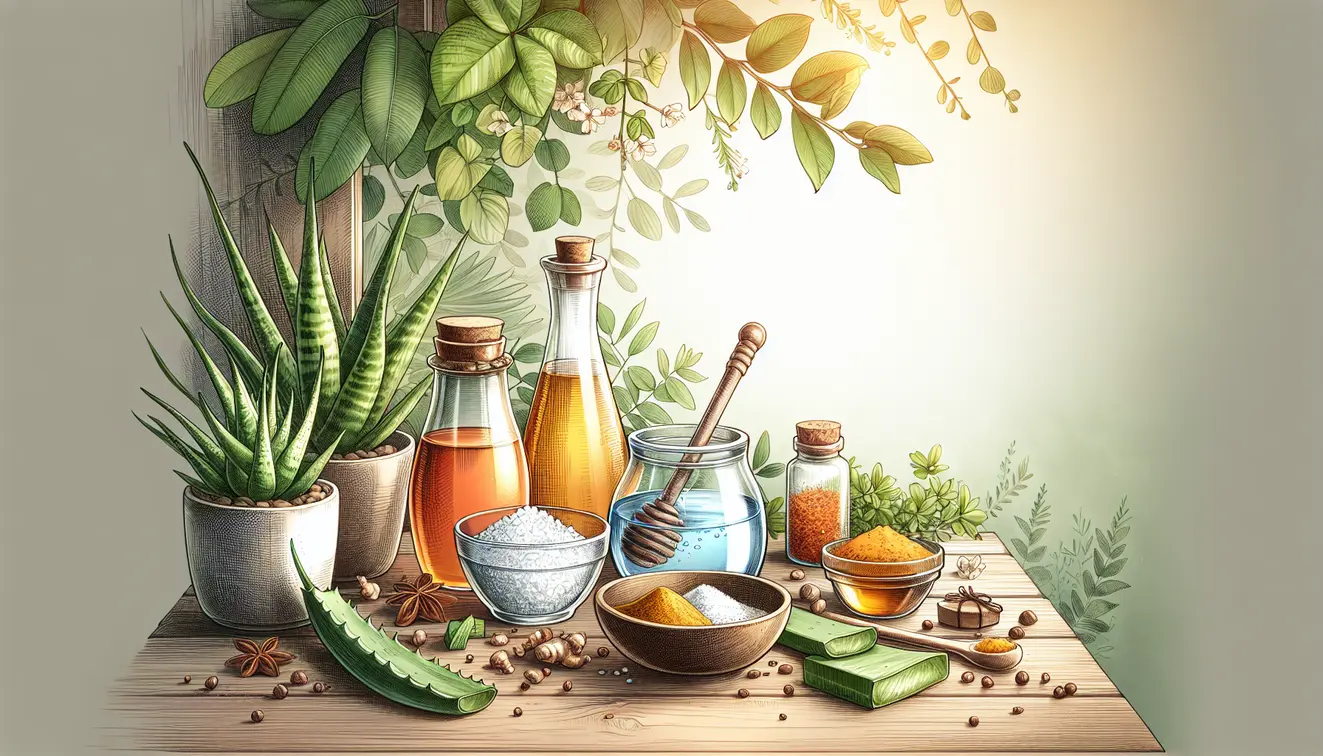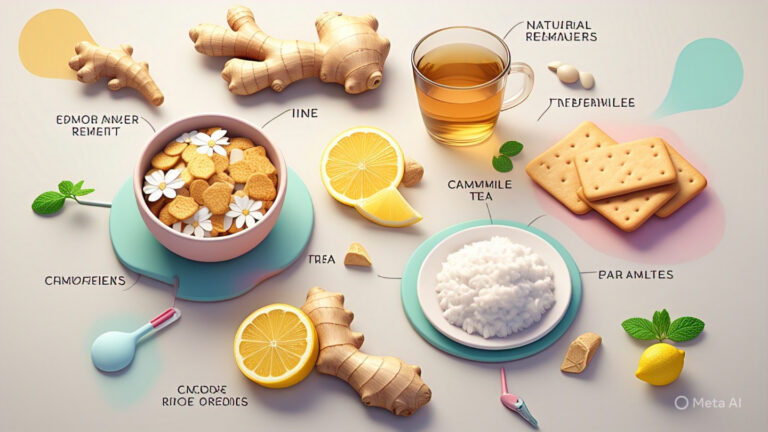Home Remedies For Hurting Gums: Natural Solutions for Pain Relief in 2025
Estimated reading time: 10 minutes
Key Takeaways
- Hurting gums can result from poor hygiene, injury, hormonal changes, or infections.
- Natural remedies like saltwater rinses and clove oil can provide relief for mild discomfort.
- Safety is crucial—test remedies, dilute strong ingredients, and stop if irritation occurs.
- Preventive habits such as proper brushing and a balanced diet protect gum health.
- Seek a dentist for persistent pain, swelling, pus, or fever beyond a week of home care.
Table of Contents
- Introduction to Hurting Gums and Gum Health
- Understanding Hurting Gums: Causes and Symptoms
- Why Opt for Home Remedies for Gum Pain?
- Top 10 Evidence-Based Home Remedies for Hurting Gums
- How to Use Home Remedies Safely
- Preventive Tips for Long-Term Gum Health
- When to See a Dentist for Gum Pain
- Frequently Asked Questions (FAQs) About Hurting Gums
- Expert Insights and Additional Resources
1. Introduction to Hurting Gums and Gum Health
Dealing with hurting gums can drain your energy and steal your focus. Whether it’s a dull ache or sharp discomfort, sore gums disrupt meals, conversations, and even sleep. At WikiHomeRemedies, we understand your need for relief through safe, natural solutions you can try right at home.
This guide walks you through the root causes of gum pain and offers practical, evidence-based home remedies to ease your discomfort. We’ll also share tips to prevent future issues and help you recognize when it’s time to see a professional. Gum health matters more than many realize—it’s tied to your overall well-being, from digestion to heart health.
Statistics from the Centers for Disease Control and Prevention show that nearly half of adults face some form of gum disease. You’re not alone in this struggle. Let’s explore why your gums might hurt and how nature’s remedies can bring comfort in 2025. For related oral health concerns, check out our guide on natural solutions for other mouth issues.
2. Understanding Hurting Gums: Causes and Symptoms
Gum pain often creeps in unnoticed until it’s hard to ignore. It could stem from something as simple as brushing too hard or signal a deeper issue like gum disease. Knowing the cause helps you choose the right path to relief while understanding symptoms ensures you act before things worsen.
Many factors lead to hurting gums. Poor oral hygiene can allow plaque to build up, irritating tissues and causing gingivitis. Physical injuries, like cuts from sharp foods or harsh dental tools, also play a role. Hormonal shifts during pregnancy or menopause might make gums tender, and conditions such as infections or vitamin deficiencies can add to the trouble. The American Dental Association notes that nearly 47% of adults over 30 have some gum disease, highlighting how common these issues are.
Symptoms often start small—think redness or a slight tenderness when brushing. You might notice bleeding during flossing, swelling along the gumline, or even a lingering bad breath. These signs point to irritation or early inflammation. However, if you experience severe pain, visible pus, or fever, it’s a warning that something more serious might be at play. Don’t brush off persistent discomfort; it could hint at an abscess or advanced infection needing urgent care, as cautioned by the Mayo Clinic. For more on severe oral pain related to infections, see our post at home remedies for abscessed tooth.
Let’s break this down further to pinpoint what might be happening with your gums.
2.1 Common Causes of Gum Pain
- Gingivitis: Plaque buildup inflames gums, often from inconsistent brushing or flossing.
- Injury: Aggressive brushing, dental procedures, or chewing hard foods can damage delicate tissue.
- Hormonal Changes: Shifts during pregnancy or puberty can make gums more sensitive.
- Infections: Bacterial or viral issues, like cold sores, can target gum areas.
- Underlying Conditions: Diabetes or nutrient deficiencies may weaken gum resilience.
2.2 Symptoms to Recognize
- Bleeding: Even minor bleeding while brushing signals potential inflammation.
- Swelling: Puffy gums often mean irritation or infection is brewing.
- Tenderness: Pain when chewing or touching gums points to sensitivity.
- Bad Breath: Persistent odor can tie back to plaque or infection.
2.3 When Is Gum Pain Serious?
Some signs demand more than home care. Severe throbbing, swelling that distorts your face, or fever alongside gum pain could indicate an abscess or systemic infection. The American Dental Association urges seeking help if pus appears or if discomfort lasts beyond a week. Ignoring these red flags risks further complications, so knowing when to step beyond natural solutions is key. For related insights on oral infections, explore our article at home remedies for toothache infection.
3. Why Opt for Home Remedies for Gum Pain?
When gums hurt, reaching for a natural fix feels instinctive. Home remedies offer a gentle way to soothe discomfort without rushing to a pharmacy. At WikiHomeRemedies, we believe in harnessing nature’s power as a first step, especially for minor gum woes, while always keeping safety in mind.
These approaches stand out for their simplicity and accessibility. Most ingredients, like salt or honey, already sit in your kitchen, saving you time and money. Unlike some over-the-counter options, natural solutions often carry fewer risks of harsh reactions when used with care. Research from sources like the National Institutes of Health supports certain remedies, such as saltwater rinses, for reducing oral inflammation.
Beyond ease, home remedies empower you to take control of your health. They complement professional care rather than replace it, offering relief while you monitor symptoms. But remember, if pain lingers or worsens, a dentist’s insight is vital. Let’s explore specific benefits that make these natural paths worth considering:
- Easy to source from everyday items.
- Minimal cost compared to medicated products.
- Gentle on the body with proper use.
We’re here to guide you through trusted options that bring comfort naturally. For other oral health challenges, see how natural remedies help with related conditions at home remedies for canker sores.
4. Top 10 Evidence-Based Home Remedies for Hurting Gums
Easing gum pain doesn’t have to be complicated. Below, we’ve gathered ten natural remedies backed by science and tradition to help you find relief. Each method comes with clear steps and safety notes, ensuring you apply them confidently. Let’s dive into these solutions curated by WikiHomeRemedies.
4.1 Saltwater Rinse for Gum Relief
A saltwater rinse stands as a time-tested way to calm irritated gums. Its antiseptic nature helps cleanse the mouth and reduce swelling. Studies from dental research confirm its ability to fight minor inflammation. Mix half a teaspoon of salt in a glass of warm water—about 8 ounces (240 ml). Stir until dissolved, then swish gently for 30 seconds before spitting out. Repeat this two to three times daily. Avoid swallowing the mix as it can dehydrate you over time. This simple rinse can be your first defense against discomfort.
4.2 Clove Oil for Pain Numbing
Clove oil acts like a natural numbing agent, thanks to eugenol, a compound with anesthetic properties. Research in dental journals highlights its use for oral pain relief. Dilute two drops of clove oil with a teaspoon of carrier oil, such as coconut oil, to prevent irritation. Dab the mixture onto a cotton swab and apply it directly to sore spots. Leave it for a few minutes before rinsing with water. Use this once or twice daily, but don’t overdo it—excess can burn tissues. For a reliable option, consider a pure clove essential oil from trusted sources. It’s a potent ally for quick relief.
4.3 Turmeric Paste for Inflammation
Turmeric brings anti-inflammatory strength to the table with curcumin as its active component. Studies from PubMed show it can lessen gum swelling. Create a paste by mixing a teaspoon of turmeric powder with a few drops of water. Apply this directly to your gums using a clean finger or soft cloth. Let it sit for five minutes, then rinse thoroughly with warm water. Do this once daily, ensuring you avoid staining your teeth by not leaving it on too long. It’s a vibrant, natural way to tackle soreness at the root.
4.4 Aloe Vera Gel for Soothing
Aloe vera offers a cooling touch to inflamed gums with its healing properties. Research from the National Institutes of Health points to its soothing effects on oral tissues. Extract fresh gel from an aloe leaf or use a pure store-bought version. Spread a small amount over tender areas and leave it for ten minutes before rinsing off. Repeat twice daily for best results. Make sure the product has no added sugars or chemicals if you’re not using fresh gel. A quality aloe vera gel can be a skin and gum savior, calming irritation gently.
4.5 Tea Tree Oil Rinse for Bacteria
Tea tree oil fights bacteria that often worsen gum pain, as supported by dental studies on its antimicrobial power. Always dilute it—undiluted oil harms tissues. Add two drops to a glass of warm water, about 8 ounces (240 ml), and stir well. Swish this rinse for 20 seconds, then spit it out completely. Use it once daily and never swallow, as it’s toxic if ingested. This rinse cuts through harmful microbes, but caution is key. A high-grade tea tree oil ensures purity for safe application.
4.6 Cold Compress to Reduce Swelling
A cold compress works wonders for swollen gums by narrowing blood vessels and dulling pain. Wrap a few ice cubes in a clean cloth or use a chilled gel pack. Press it against the outside of your cheek near the sore area for ten minutes. Take a break, then repeat if needed, up to three times a day. Don’t place ice directly on gums—it can damage delicate tissue. This method, backed by basic medical principles, offers instant relief for puffiness and discomfort after meals or brushing.
4.7 Chamomile Tea Rinse for Calm
Chamomile tea brings a calming wave to irritated gums with its mild anti-inflammatory traits. Studies note its historical use in oral care. Brew a cup using one tea bag or a teaspoon of dried chamomile in hot water—let it cool to lukewarm. Swish the liquid around your mouth for 30 seconds, then spit it out. Do this twice daily, especially after meals, to ease tenderness. Its gentle nature suits sensitive mouths, providing a soft, floral shield against irritation. Sip or rinse—it’s pure comfort.
4.8 Hydrogen Peroxide Rinse for Minor Infections
Hydrogen peroxide can tackle minor infections by killing bacteria, as backed by dental health resources. Use a 3% solution and dilute it—mix equal parts with water to make it safe. Swish a small amount for 20 seconds, ensuring you don’t swallow any, then spit it out. Rinse with plain water after to clear residuals. Limit this to once daily for no more than three days, as overuse harms healthy tissues. The Mayo Clinic warns against frequent use, so keep it as a short-term fix for sudden flare-ups.
4.9 Honey Application for Healing
Honey’s natural enzymes promote healing and fight bacteria on irritated gums. Research from PubMed underlines its wound-care benefits. Dab a small amount of raw, unprocessed honey directly onto sore areas with a clean finger. Let it sit for five minutes before rinsing with warm water. Apply this once or twice daily, avoiding excess to prevent stickiness or sugar buildup near teeth. Its golden touch soothes while protecting against further irritation. Choose raw honey for the purest, most effective results every time.
4.10 Ginger Tea Rinse for Antioxidants
Ginger offers anti-inflammatory and antioxidant effects to tame gum soreness. Dental studies support its role in reducing oral inflammation. Boil a small piece of fresh ginger—about an inch (2.5 cm)—in a cup of water for ten minutes, then cool it down. Swish the tea in your mouth for 30 seconds before spitting it out. Use this rinse twice daily to harness its warming benefits. It counters swelling while leaving a subtle, spicy freshness. Ginger’s natural punch quietly restores balance to tender tissues.
5. How to Use Home Remedies Safely
Exploring natural remedies for gum pain feels empowering, but safety must lead the way. At WikiHomeRemedies, we want your journey to relief to be free of unnecessary risks. These solutions work best when applied with care and awareness of your body’s signals.
Start by testing any new remedy on a small area, like a tiny spot on your gum, to catch potential reactions. Dilute strong ingredients—think essential oils or hydrogen peroxide—as undiluted forms can burn or irritate. Stick to recommended frequencies, such as rinsing no more than thrice daily, to avoid stressing delicate tissues. If you’re on medications or have conditions like allergies, check with a healthcare provider to sidestep interactions.
Here are key practices to follow and pitfalls to avoid:
- Do measure ingredients precisely, especially for rinses.
- Don’t overuse potent remedies like clove oil or peroxide.
- Do rinse thoroughly after applications to clear residues.
- Don’t ignore discomfort—if a remedy irritates, stop immediately.
The National Institutes of Health emphasizes moderation with natural treatments. Listen to your body, and remember that these are aids, not cures for deeper issues. With careful steps, you’ll soothe your gums while keeping risks at bay as we move toward lasting prevention.
6. Preventive Tips for Long-Term Gum Health
Stopping gum pain before it starts is the ultimate goal. Healthy habits shield your mouth from irritation and keep discomfort away. At WikiHomeRemedies, we’re committed to guiding you toward sustained gum wellness with practical, everyday steps.
Brush twice daily using a soft-bristled toothbrush to clean without harming tissues. Floss once a day to clear debris between teeth—plaque loves those hidden spots. A balanced diet fuels gum strength, so reach for foods rich in vitamin C, like oranges or bell peppers, to boost tissue repair. Steer clear of sugary snacks and sodas that feed harmful bacteria, as the World Health Organization links excess sugar to oral decay.
Lifestyle tweaks make a difference too. Quitting smoking protects gums from damage, while managing stress prevents grinding that wears down enamel and irritates tissues. Try oil pulling with coconut oil—swish a tablespoon for ten minutes daily, then spit it out. Studies suggest it reduces plaque over time. Consider these actionable habits:
- Rinse with water after acidic meals to neutralize harm.
- Chew sugar-free gum to stimulate saliva and cleanse naturally.
- Drink plenty of water— hydration supports gum moisture.
The American Dental Association backs these routines for lasting oral health. Build them into your life to guard against the causes we’ve discussed, ensuring your gums stay resilient through 2025 and beyond. For more on maintaining oral hygiene, check our guide at home remedies for bad breath.
7. When to See a Dentist for Gum Pain
Home remedies offer comfort, but they can’t solve every gum issue. Knowing when to seek a dentist’s expertise keeps small problems from growing into serious threats. At WikiHomeRemedies, we prioritize your safety by helping you spot the line between self-care and professional need.
Reach out for help if pain persists beyond a week despite using natural solutions. Significant swelling, especially if it changes how your face looks, signals trouble. Other urgent signs include pus around gums, fever, or difficulty chewing—these hint at infections like an abscess. The American Dental Association flags these as emergencies needing prompt attention. Don’t wait if bleeding won’t stop or if a foul taste lingers; it could point to deeper decay.
Walking into a dental office for gum pain often starts with a thorough check. They might take X-rays to see below the surface or test for infection. It’s a straightforward process, and most dentists aim to ease your worry with clear explanations. Trust that professional care builds on the relief you’ve sought at home, ensuring no underlying issue slips through unnoticed.
8. Frequently Asked Questions (FAQs) About Hurting Gums
Gum pain raises questions, and we’re here to clarify your concerns at WikiHomeRemedies. Below, find answers to common queries about soothing discomfort naturally and safely.
How long should I try home remedies before seeing a dentist?
Give natural solutions about a week if symptoms are mild, like slight tenderness or redness. If pain intensifies or persists beyond seven days, consult a dentist. The American Dental Association suggests not delaying when discomfort disrupts daily life.
Can hurting gums indicate a serious condition?
Yes, they can. While often linked to gingivitis, persistent or severe pain might signal an abscess, infection, or advanced gum disease. Don’t ignore accompanying fever or swelling—seek care swiftly.
Are there safe remedies for children or pregnant women?
Simple options like saltwater rinses work for most, but avoid essential oils for kids or during pregnancy without medical advice. Always consult a doctor or dentist to confirm safety for specific needs.
How do home remedies compare to over-the-counter solutions?
Natural remedies like clove oil or aloe vera often have fewer side effects for mild cases and cost less. Over-the-counter gels may act faster for some but can irritate with overuse. Balance both with professional guidance.
9. Expert Insights and Additional Resources
Navigating gum health feels easier with trusted voices backing your steps. At WikiHomeRemedies, we lean on expertise to ensure you’re equipped with reliable guidance for natural relief in 2025.
A certified dentist shared, “Home remedies like saltwater rinses support minor gum irritation, but they’re not a fix for infections. Always monitor symptoms closely.” This perspective reinforces the balance between self-care and professional insight. For deeper reading, explore resources from the Mayo Clinic on oral health basics or the American Dental Association’s guidelines on gum disease prevention. WebMD also offers practical tips for natural oral care.
Have a remedy that worked for you? We’d love to hear your story or questions—sharing builds a community of natural healing. Together, let’s keep uncovering safe paths to wellness with nature as our guide.










